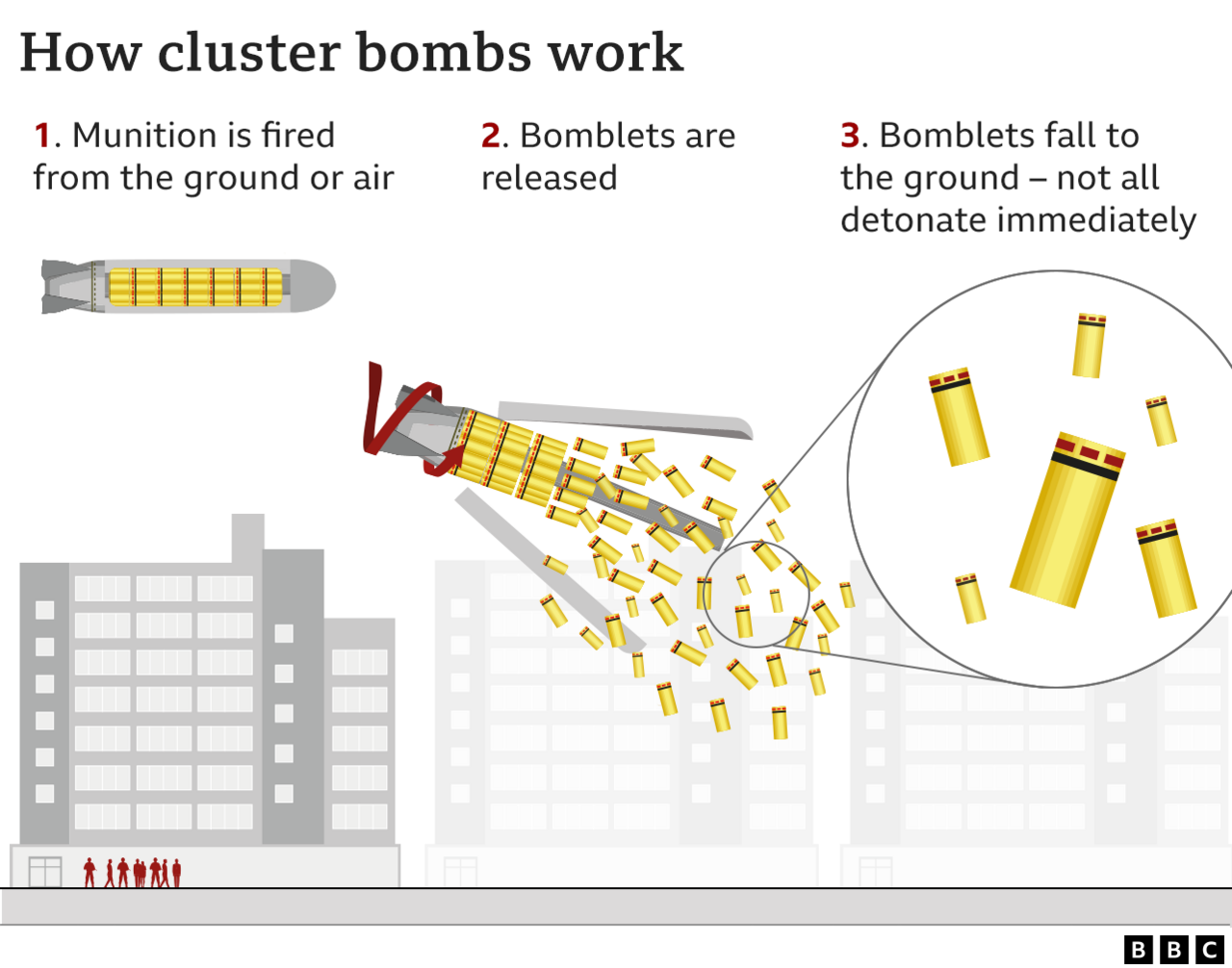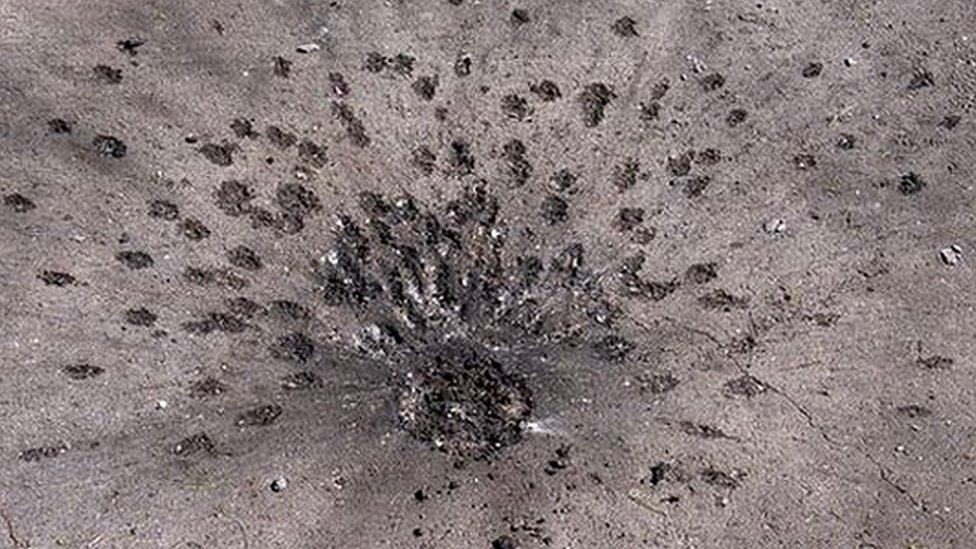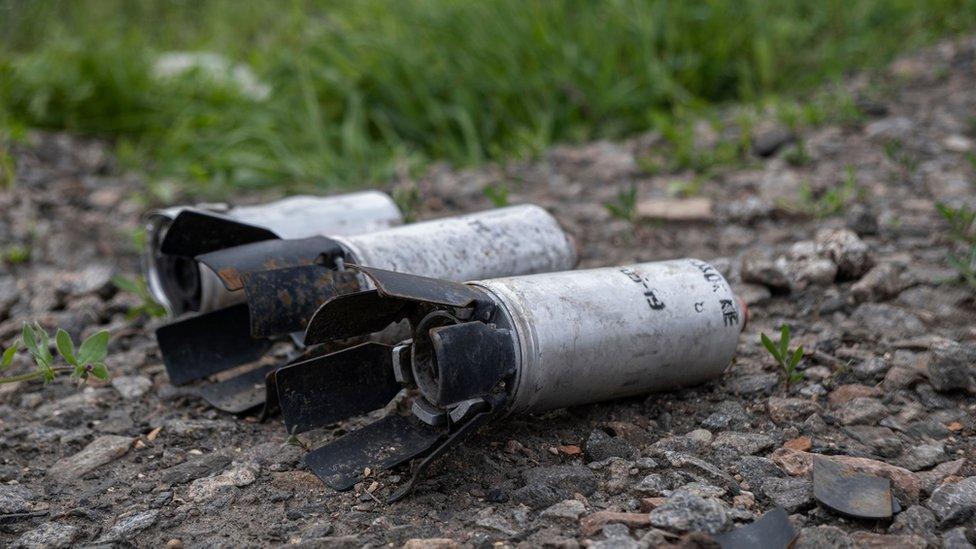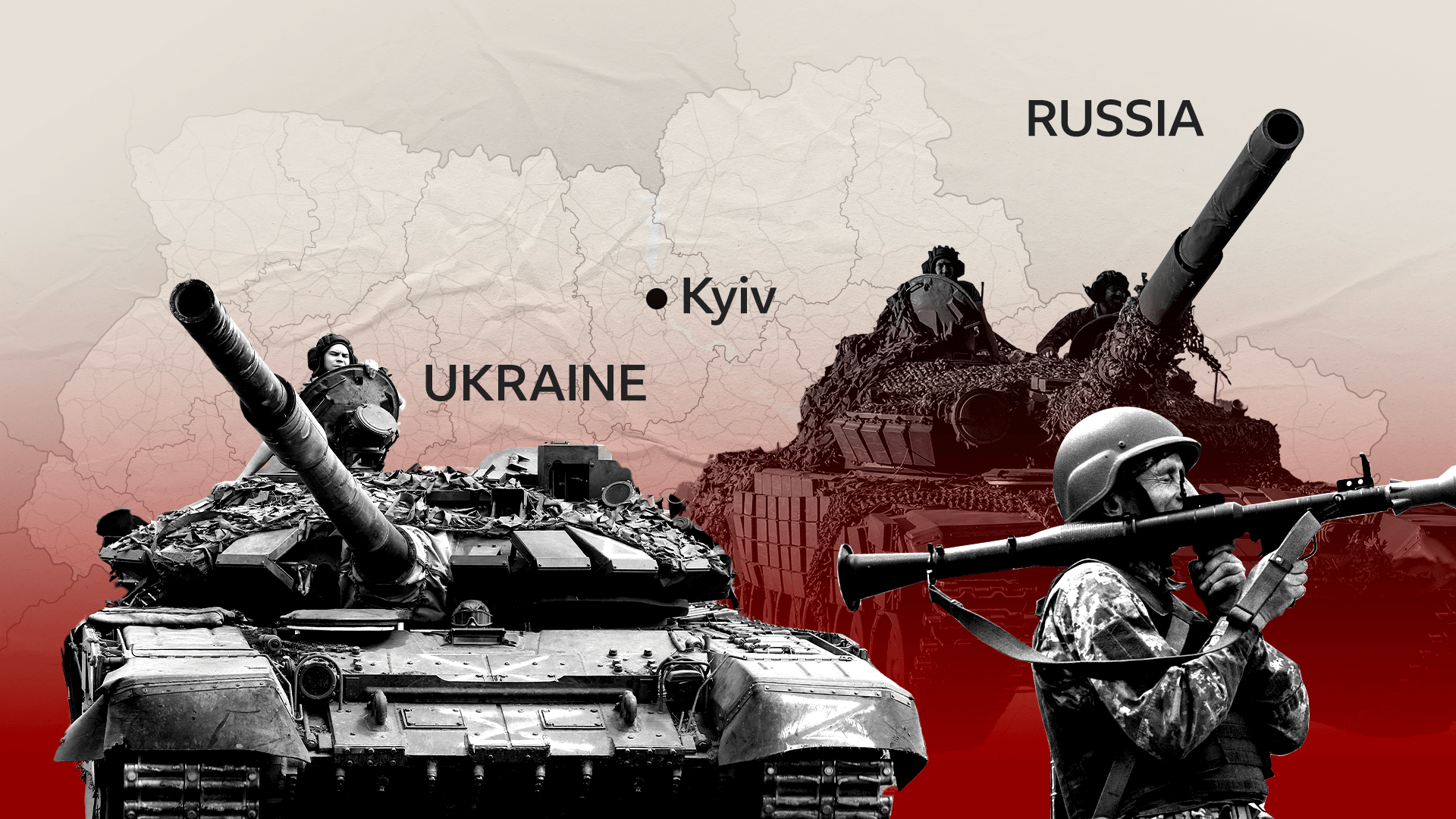Cluster bombs: Biden defends decision to send Ukraine controversial weapons
- Published
Watch: White House addresses sending Ukraine cluster munitions
US President Joe Biden has defended his "very difficult decision" to give Ukraine cluster bombs, which have a record of killing civilians.
The president said it had taken him "a while to be convinced to do it", but he had acted because "the Ukrainians are running out of ammunition".
Ukraine's leader hailed the "timely" move.
But the UK's PM suggested the country "discourages" the use of cluster bombs, while Spain criticised the decision.
When asked about his position on the US decision, Rishi Sunak highlighted the UK was one of 123 countries that had signed up to the Convention on Cluster Munitions, which prohibits the production or use of cluster munitions and discourages their use.
Spain's Defence Minister Margarita Robles told reporters her country had a "firm commitment" that certain weapons and bombs could not be sent to Ukraine.
"No to cluster bombs and yes to the legitimate defence of Ukraine, which we understand should not be carried out with cluster bombs," she said.
But Germany, which is a signatory of the treaty, said that while it would not provide such weapons to Ukraine it understood the American position.
"We're certain that our US friends didn't take the decision about supplying such ammunition lightly," German government spokesman Steffen Hebestreit told reporters in Berlin.
Mr Biden told CNN in an interview on Friday that he had spoken to allies about the decision, which was announced ahead of a Nato summit in Lithuania next week.
The US, Ukraine and Russia have not signed up to the convention, and both Moscow and Kyiv have used cluster bombs during the war.
National Security Adviser Jake Sullivan told Friday's daily White House briefing that officials "recognise the cluster munitions create a risk of civilian harm" from unexploded bombs.
But he said Ukraine was running out of artillery and needed "a bridge of supplies" while the US ramps up domestic production.
"We will not leave Ukraine defenceless at any point in this conflict period," he said.
Ukraine's defence minister has given assurances the cluster bombs would not be used in urban areas and only to break through enemy defence lines.

The munitions have caused controversy over their failure - or dud - rate, meaning unexploded small bombs can linger on the ground for years and indiscriminately detonate later on.
Mr Sullivan told reporters the American cluster bombs being sent to Ukraine were far safer than those he said were already being used by Russia in the conflict.
He told reporters the US ones have a dud rate of less than 2.5%, while Russia's have a dud rate of between 30-40%, he said.
Mr Biden's move will bypass US law prohibiting the production, use or transfer of cluster munitions with a failure rate of more than 1%.
Early on in the war, when the White House was asked about allegations that Russia was using cluster and vacuum bombs, the then-press secretary said it would be a potential "war crime" if true.
There has been a mixed reaction among the US president's Democratic Party, more than a dozen of whom have spoken out against the plan.
Human rights groups also criticised the decision, with Amnesty International saying cluster munitions pose "a grave threat to civilian lives, even long after the conflict has ended".
The US Cluster Munition Coalition, which is part of an international civil society campaign working to eradicate the weapons, said they would cause "greater suffering, today and for decades to come".
The UN human rights office has also been critical, with a representative saying "the use of such munitions should stop immediately and not be used in any place".
Watch: US military video shows how cluster munitions explode
A spokesperson for Russia's defence ministry described the move as an "act of desperation" and "evidence of impotence in the face of the failure of the much publicised Ukrainian 'counteroffensive'."
Russian President Vladimir Putin has previously accused the US and its allies of fighting an expanding proxy war in Ukraine.
But Ukrainian President Volodymyr Zelensky thanked the US president for "a timely, broad and much-needed" military aid package worth $800m (£626m).
He tweeted that it would "bring Ukraine closer to victory over the enemy, and democracy to victory over dictatorship".
Ukraine's counter-offensive, which began last month, is grinding on in the eastern Donetsk and south-eastern Zaporizhzhia regions.
Last week, Ukraine's military commander-in-chief Valery Zaluzhny said the campaign had been hampered by a lack of adequate firepower, and expressed frustration with the slow deliveries of weapons promised by the West.
Related topics
- Published12 June 2022

- Published10 July 2023

